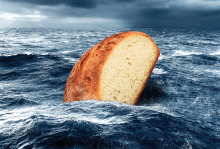Homer

THE ROUGH VOICE of the aging priest is muffled as he bends forward to touch his head to the marble altar. Face down is better than face out, he thinks, where his failure is on full display.
The near-empty church extends into shadow. A handful of worshippers avoid close contact. They grip the wooden pews with desperation, the half-drowned scrambling for a gunwale. “The hulk of the shipwreck behind them,” as the poet says. Their children won’t come to church, the hypocrisy too much to bear. He knows the saints in high niches are no match for the idols in their children’s pockets, provide no relief from their hollowed-out fatigue. He glances up. I am the captain of this ship, he thinks, and we are going down. The bread sits lifeless in the paten. The wine a flatline. Instead of Christ at the Last Supper, the priest recalls Odysseus clinging to the fig tree while the sea greedily sucks down his ship and men. Is that what you get for rustling the gods’ cattle, he wonders.
MY FIRST GUIDED tour of Indianapolis was with a real estate agent, crisscrossing the city in his gleaming black Lexus. He spoke as he drove, filling the air with phrases such as, “Now, this is a terrific neighborhood,” and “You’ll want to steer clear of that one over there.”
As you’d guess, he focused on amenities, or the lack of them: hip restaurants, nearby shopping, nice parks, great schools. Security and consumables, good neighborhoods and bad. A mental map of the city took shape as we drove.
My second tour, just a few days later, was quite different—so different that it changed my life. This time the guide was one of the faculty members at Christian Theological Seminary, the school where I had just been appointed president. She’d lived in the city for more than 20 years, and on her tour, consumables came up now and then, but they took a definite back seat to the creative, groundbreaking ministries going on around town.
Her remarks frequently echoed the real estate agent’s, but from an entirely different angle. She’d say, “Now, this is a low-income neighborhood and a food desert [a section of the city where nutritious, affordable food isn’t readily available]—and right there on the corner is the amazing little church that’s started an organic community garden ministry.” Then a few minutes later: “Now, this is a middle-income neighborhood—and there’s the mosque that’s making a tremendous difference through its youth program.” And so on.